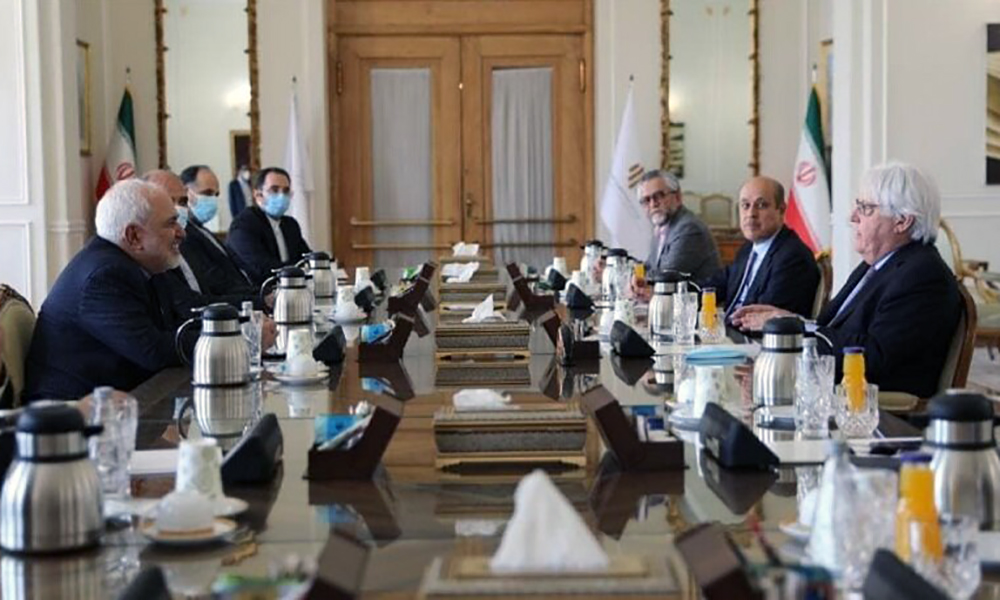Zarif meets with UN envoys for Yemen and Afghanistan

Iranian Foreign Minister Mohammad Javad Zarif met with UN Secretary-General’s Personal Envoy on Afghanistan Jean Arnault and Martin Griffiths, the UN special envoy for Yemen.
Zarif and Arnault discussed the developments in Afghanistan. During the meeting, Zarif explained the views of the Islamic Republic of Iran on Afghanistan, especially peace and security in the country as well as the peace process led by Afghans.
The foreign minister also underlined Iran’s support for intra-Afghan talks and protection of the achievements of the Afghan people in recent years, especially in the field of fundamental rights, according to a statement put out by the Iranian Foreign Ministry.
Arnault, for his part, pointed to the importance of Afghanistan’s neighbors and said that he began his regional trip by visiting Iran. The UN official pointed out that the problem of Afghanistan can be solved through collective actions and the focus of his efforts is to find a way to this collective cooperation.
The Tuesday meeting came in continuation of Iran’s diplomatic efforts to push forward the Afghan peace process.
Mohammad-Ebrahim Taherian, the Iranian foreign minister’s special envoy for Afghanistan, held phone talks with Abdullah Abdullah, the head of Afghanistan’s High Council for National Reconciliation (HCNR), on the country’s developments and the visit to Tehran of the UN secretary general’s personal envoy on Afghanistan.
In the Tuesday phone call, Abdullah called for continued support for the country’s peace process.
Taherian, in turn, underlined Iran’s support for the Afghan peace process and efforts made within this framework.
He also stressed the need for more interaction among various groups in the country in order to accelerate the move toward peace.
Zarif also met with the UN envoy for Yemen. At the meeting, Zarif and Griffiths discussed the various dimensions of the Yemeni crisis and ways to achieve peace and stability in the country, according to a separate statement issued by the Foreign Ministry.
Elaborating on the Islamic Republic’s view on how to end the conflict in Yemen, the Iranian foreign minister pointed to the developments that followed the crisis in the country and stressed the need to lift the siege on the Yemeni people and facilitate the provision of humanitarian aid to the Yemenis.
Explaining the principled view of Iran that war is not the solution to the Yemeni crisis, Zarif stressed that only through political dialogue and peaceful means the current miserable situation in Yemen can be brought to an end.
Griffiths, for his part, briefed Zarif on the outcome of his talks with the relevant parties on the Yemeni crisis.
